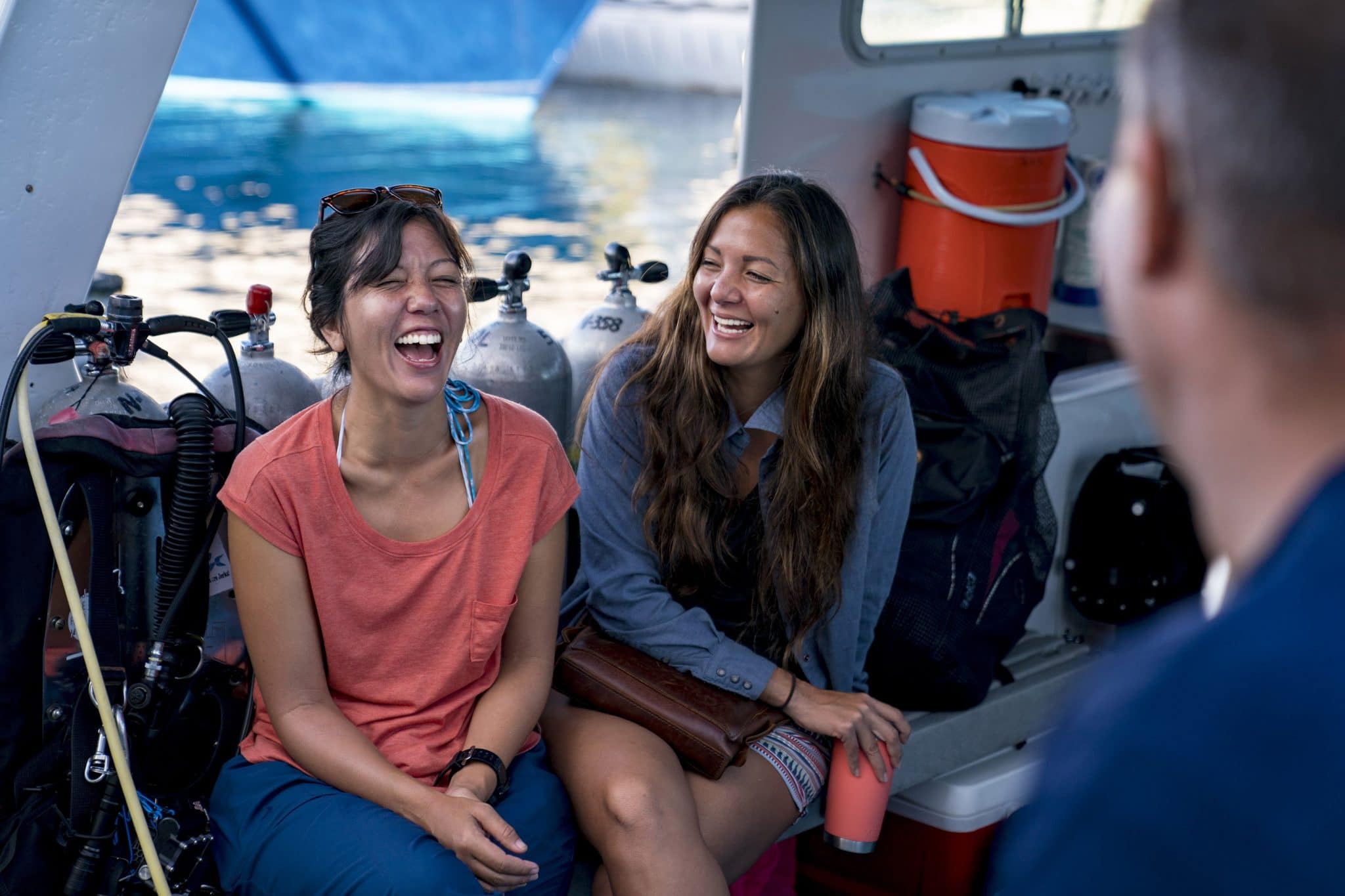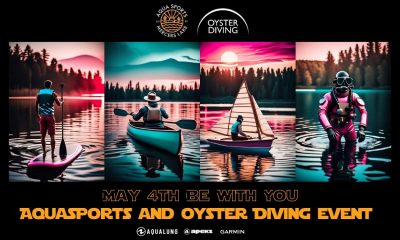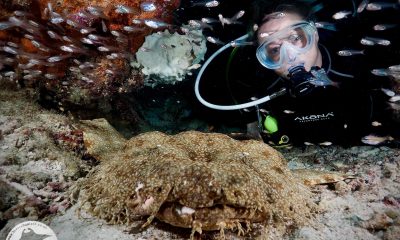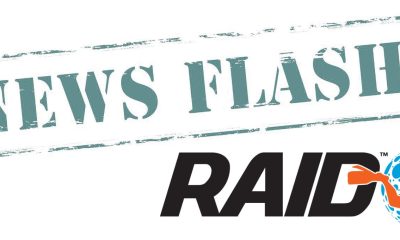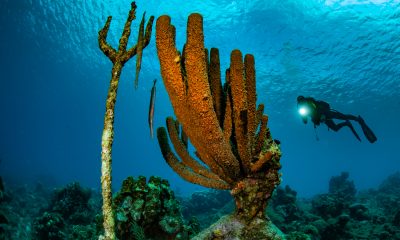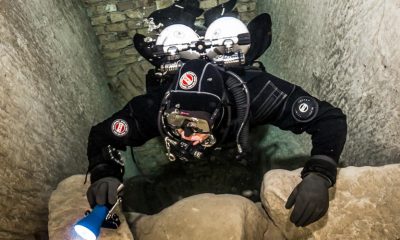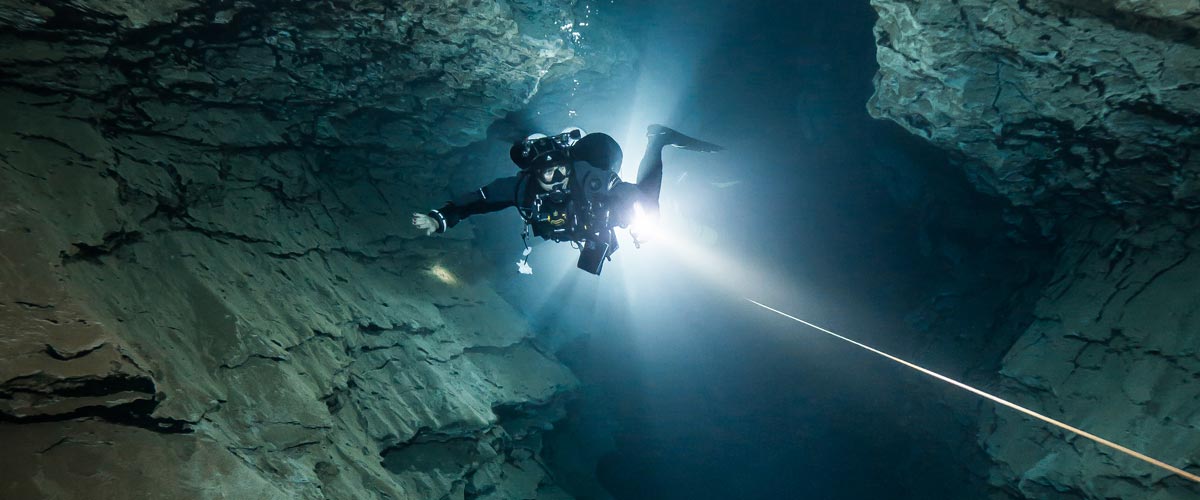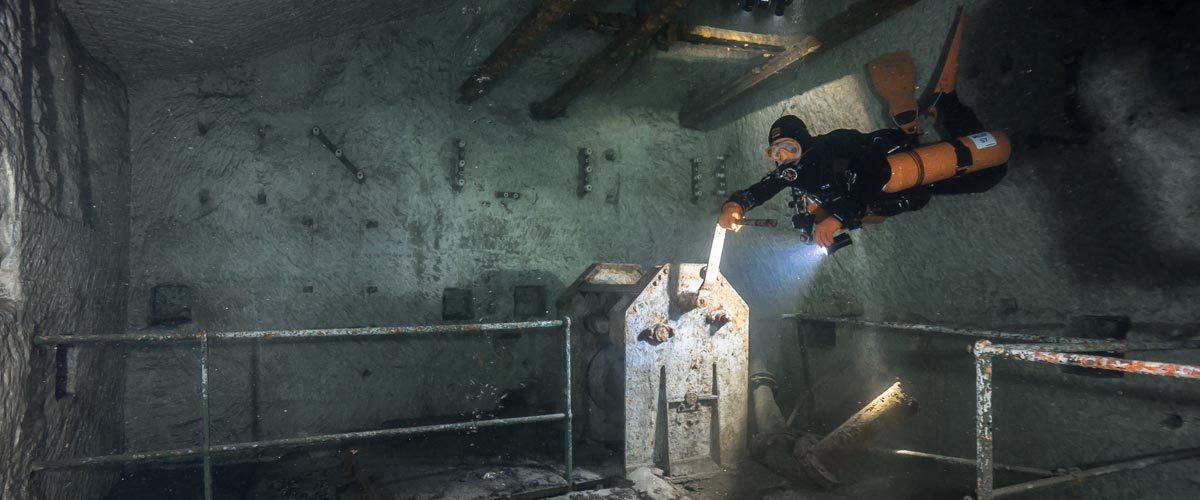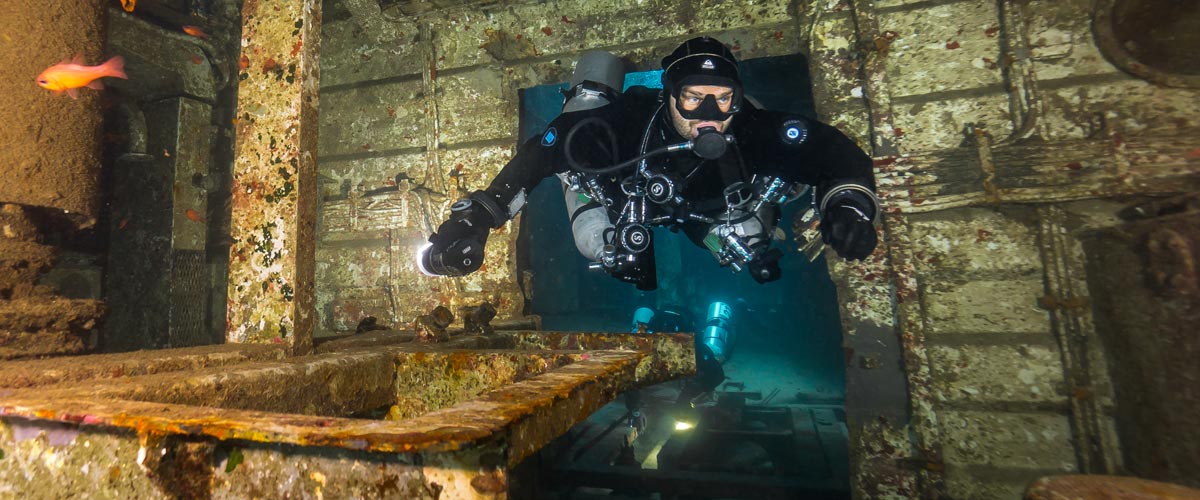Dive Training Blogs
PADI Women’s Dive Day 2021 highlights important role inclusivity plays in creating balance between humanity and ocean
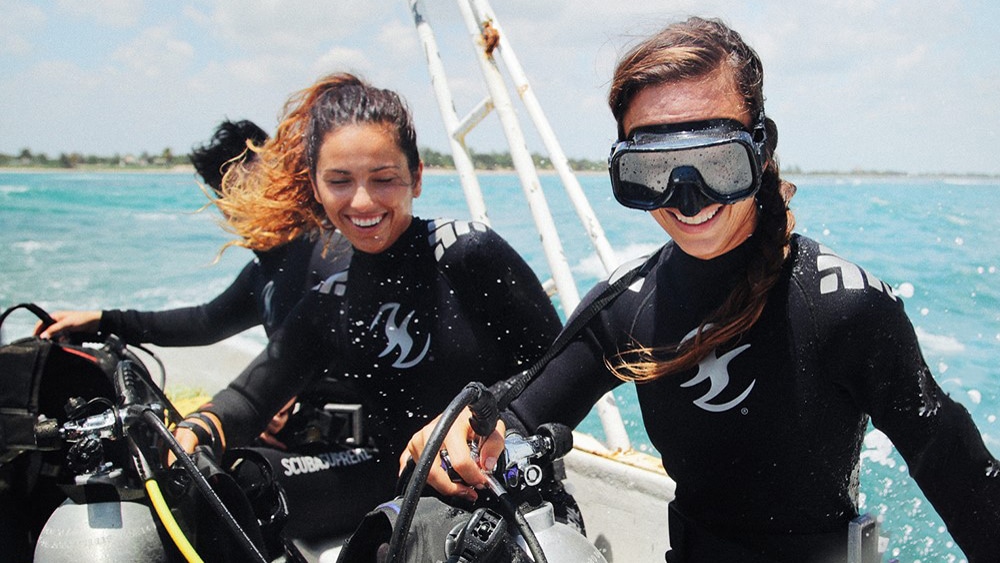
 PADI®, the world’s largest ocean exploration and diver organisation, is celebrating with divers from around the globe tomorrow for the seventh annual PADI Women’s Dive Day on Saturday, July 17.
PADI®, the world’s largest ocean exploration and diver organisation, is celebrating with divers from around the globe tomorrow for the seventh annual PADI Women’s Dive Day on Saturday, July 17.
With the overwhelming support of the dive community over the last six years, PADI Women’s Dive Day has grown into a worldwide celebration of shared adventure, passion and ocean advocacy. The annual event is dedicated to fostering a global community that encourages divers of all genders, ages, races, backgrounds and abilities to safely and confidently explore and protect the underwater world. Year after year, Women’s Dive Day activities have addressed ties between diversity, inclusion and environmentalism – with this year’s events scaled accordingly for the COVID-19 pandemic.
“PADI Women’s Dive Day is an opportunity for divers everywhere to unite as a community with the common goal of creating balance between humanity and ocean,” says Kristin Valette Wirth, Chief Brand and Membership Officer of PADI Worldwide. “PADI has a wonderfully diverse and inclusive community of members and divers in 186 countries around the world. We celebrate this diversity, as it is embedded in the ethos of our organisation. We take pride in the progress we’ve made to increase diversity, accessibility, and inclusion in our sport and constantly challenge ourselves to do more.”
Since its inception in 2015, the event has contributed to the significant growth in the number of female divers and subsequently, PADI Torchbearers™ who have shared and inspired passion for ocean conservation. The dive community is teeming with female divers who are marking remarkable contributions for improved ocean health and connecting their communities to local waters. Throughout the month of July, PADI is spotlighting the stories and perspectives of incredible #PADIWOMEN around the world who are leading change by example and opening doors for countless others to experience the ocean firsthand, including Zandile Ndhlovu, a PADI Freediver Instructor™ from Johannesburg, South Africa, who founded the Black Mermaid Foundation to make the oceans more inclusive.
“Together as a global dive community we can save our oceans,” says Ndhlovu. “Once people get to experience the ocean, it changes everything around how they’ve always looked at it. It begins to also feel like home, a place that they will always protect. And that is why it is important that there is always diverse representation in the ocean.”
Other notable women include Xochitl Clare, a PADI AmbassaDiver™ and marine biologist from California, United States, researching the effects of climate change on fisheries species; Cody Unser, a PADI AmbassaDiver who is working to introduce more people with disabilities to diving and promote the sport’s therapeutic benefits; and 13-year-old Julia Aveline Rabenjoro a PADI Junior Advanced Open Water Diver in Kota Kinabalu, Malaysia.
“Learning to dive really transformed my life because it introduced me to a whole new intricate world that makes me feel at peace and it taught me how much we really depend on our ocean,” says Aveline Rabenjoro. “My greatest hope for the next generation of female divers is for them to grow in numbers and never doubt the difference they can make no matter where they come from or who they are. Together as a global diving community, we can further this by sharing our passion and love for diving with others who haven’t yet been lucky enough to explore beneath the surface.”
Divers and non-divers alike can connect with the motivating stories of PADI women and learn how they can join the community by visiting padi.com/women. They can find PADI Women’s Dive Day events in their area or participate virtually through social media conversations utilising the #PADIWOMEN hashtag.
Year-round, people worldwide can access PADI’s recently launched Conservation Activities Locator to find local events in their community. From joining an underwater lake cleanup in Connecticut to taking part in a week-long conservation workshop in Belize, ocean enthusiasts have a variety of experiences to choose from on Women’s Dive Day and beyond.
To learn more about how you can participate in PADI Women’s Dive Day, contact your local PADI Dive Center or Resort, or visit www.padi.com/women. For information about learning to dive, visit www.padi.com/education/learn-to-dive.
Blogs
Intro to Tech: What is it about?
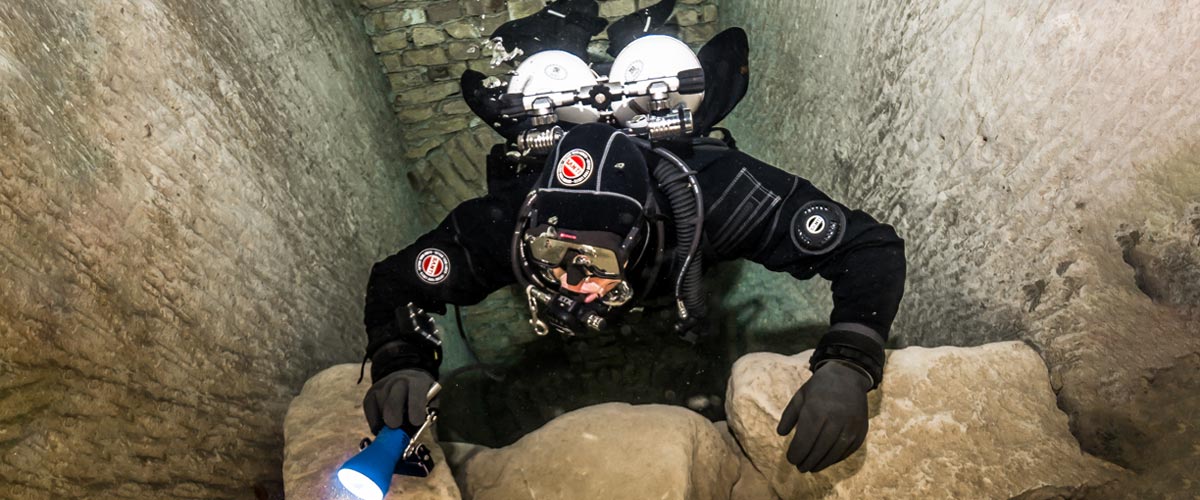
Article by José Pablo Mir
Pictures by Cezary Abramowski
The world of technical diving is exciting. It opens the door to new sites, depths, and bottom times. More importantly, it opens our minds to a new way of planning, facing, and experiencing dives, even those not purely technical.
Becoming a technical diver is a process, and like in other aspects of life, we should find the proper entry point that suits us best based on our knowledge and experience. The Introduction to Technical Diving course from TDI -the world’s largest and most recognized technical diving teaching organization- is the best option for divers who have yet to gain experience in the fundamental aspects of this new practice. The course’s content and its embrace of new techniques and technologies make it possible to acquire a solid foundation to learn and gain experience in this practice properly.
Becoming a technical diver is not something that happens overnight, whether deciding to become one or receiving a certification card stating we are now technical divers. It is a slow process extending farther away than any introductory course. It requires effort and dedication. But it will bring us satisfaction from day one -or two.
It is a matter of mentality
First, we must understand and accept that technical diving, involving greater depths, longer bottom times, exotic gases, virtual or real ceilings, and more, comes with higher levels of risk than the sport diving we have been practicing until now.
Although this discussion usually starts with a warning about risks, as I’ve done in the previous sentence, our practice is not a game of chance.
Technical diving is a rational activity that requires maturity and good judgment, and we will put everything into ensuring that each dive is a successful one -meaning we return from it safe and sound. With this understanding, we will strive to establish a mental attitude more aligned with our practice and its realities.
This new “technical diver” mindset we will develop will lead us to be more cautious in our executions, more analytical in our plans, more rational in our strategies, and more detailed in our procedures.
Experience will keep teaching us to know ourselves better, to keep our anxiety and other emotions under control, and to manage our impulses. Over time, our senses will sharpen, and we will be more attentive to the particulars of the situation we find ourselves in.
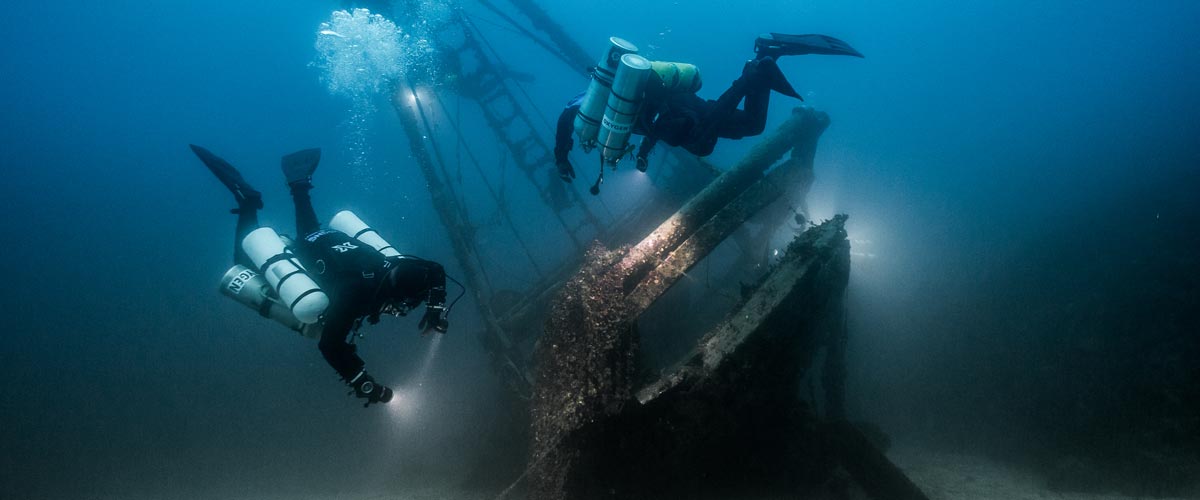
Strategies and procedures
Our strategies, those broad guiding lines tracing the path to follow, from how to approach planning to where, with what, and how we are willing to get there, will be more specific and more practical. Not because they magically become so, but because we will consciously and deliberately frame them that way.
We will establish clear, concise, and realistic procedures. Not only for the undesirable situations that may present themselves but also for those that are part of our dive objectives.
Even though, as technical divers, we often use equipment different from what we were previously accustomed to, it is essential to note that the gear does not make the diver. In a way, we could consider such equipment as the necessary tools to implement what our goal seeks to achieve, according to our strategies and procedures.
Technique plays an important role
We must put our greatest effort into learning and perfecting the different techniques we will be acquiring. Buoyancy, trim, propulsion, cylinder handling, deploying DSMBs and lift bags, valve drills, and more are essential skills we must begin to master to progress in our art. What we cannot do, when we need to do it, can harm us.
Our techniques must be effective and achieve the purpose for which they were devised. But they must also be efficient and require the least resources possible, including the time they take and the effort they demand. Effectiveness and efficiency will prevail over beauty and other considerations that may come to mind, although none of them should be mutually exclusive. A technique executed efficiently and effectively tends to have an inherent beauty.
Refining techniques is a lifelong mission. Some of them will be easy to master from the go; others, on the other hand, will be our life mission and will require many repetitions just to resemble the idea we have in mind of how they should be executed.
We must consider the environment
Our learning, the needs and musts of the practice we engage in, the experience we gradually gain, our strategies and procedures, and even our equipment and tools change with the environment.
Diving in the ocean, everything about us must be suitable for ocean dives. Conditions there rarely emulate those found in a pool, lake, or river. Variable winds and currents, greater depths, visibility conditions, other divers with uncertain skills around us, marine life, maritime traffic, distance from the coast, and many other factors add complexity and uncertainty.
It is never necessary to master the pool on the first day, but planning and aspiring to gradually cope with the ocean’s conditions is essential.
The cost of good training
We are aware that our resources are often scarce in relation to the possibilities of use we could give them if they were not. To a greater or lesser extent, we are part of the economic reality in which we are embedded.
Fortunately, the cost of good technical diver training is not an entry barrier. Comparing training and equipment costs, we see that the former are generally lower. Yes, lower cost for personalized service, essential to our future
performance and safety, than for a series of mass-produced products that are mere, albeit necessary, tools for an end.
The value of good training
The value of the training we received encompasses a range of characteristics, from emotional and methodological to technical and technological. TDI and its Introduction to Technical Diving course offer a deep and modern approach, with a teaching strategy that aims to create thinking divers, not merely obedient ones.
As technical divers, our knowledge is our primary tool. In this type of activity, what we don’t know can harm us.
Is this course optional?
Unfortunately, the fact that this Introduction to Technical Diving course is not a prerequisite for any subsequent training is an invitation to consider it optional. And we all know what usually happens to “optional” under budget constraints.
However, this course should be seen as optional only by those divers who are somehow familiar with the use of technical equipment, who have a mindset more in line with the requirements of this type of diving, who plan and execute the dives the proper “technical” way, who know their gas consumption rate, who are not intimidated by non-decompression tables, who feel comfortable using their dive computers, and know the techniques and have at least an acceptable level of buoyancy, positioning, and propulsion. Those can go straight to a more advanced training course, such as TDI’s Advanced Nitrox.
We must ask ourselves whether or not we are in that group.
Remember our goal: to have fun
Recreational diving is our passion. Jumping into the water carrying heavy equipment and having properly dotted our I’s and crossed our T’s have only one ultimate goal: fun. This is the activity we have chosen as a hobby. We must enjoy it; it must give us pleasure and make us vibrate.
Having a good time is not optional!
Blogs
Four opportunities to go pro in 2024 with Dive Friends Bonaire
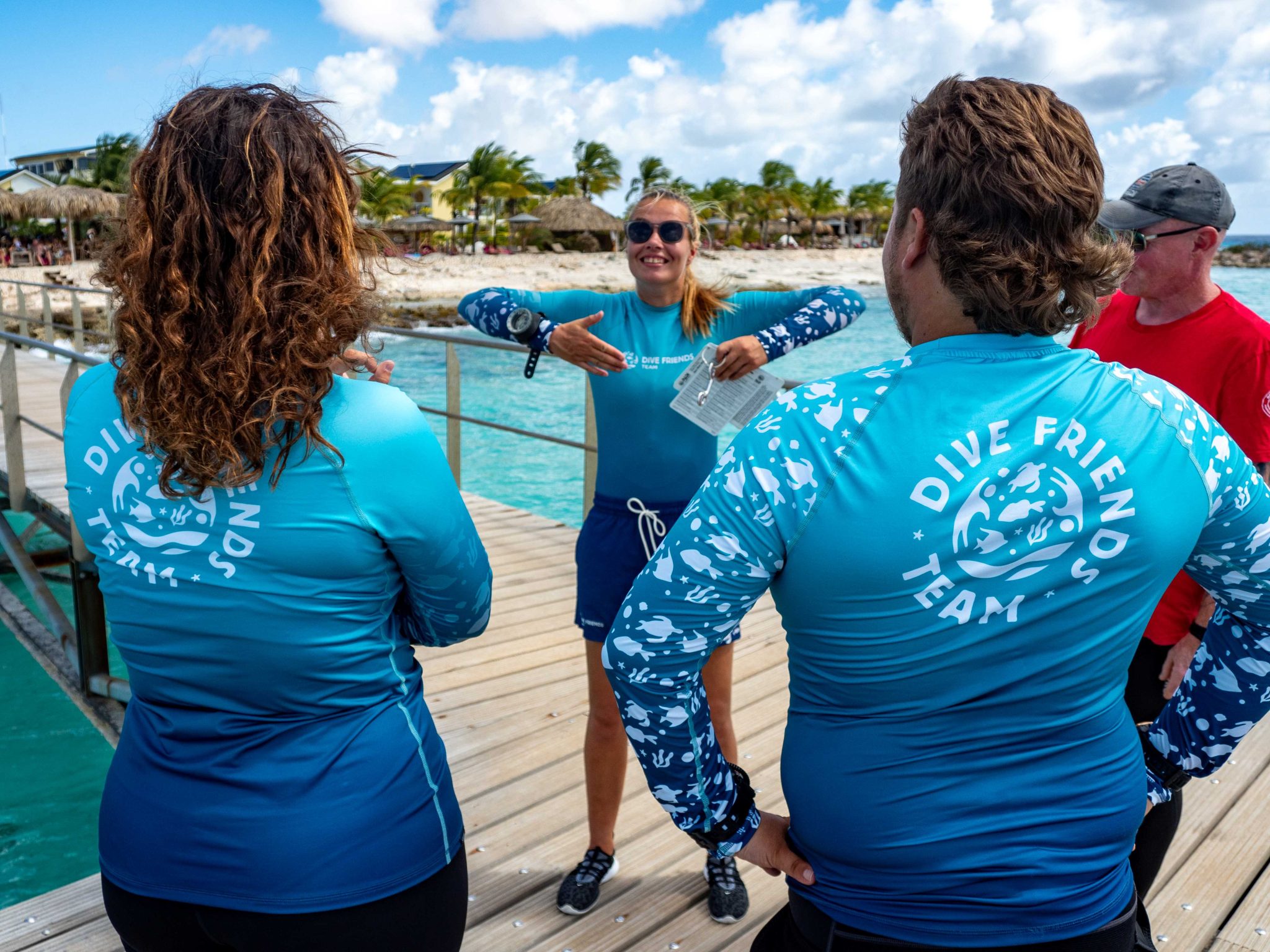
Dive Friends teaches the Instructor Development Course (IDC) several times a year to students who are eager to share their passion for diving with the world.
Dive Friends is known for the personal approach throughout the course. Their in-house course director will lead the students through every essential step, mentoring them to achieve their fullest potential as a dive instructor.
Applications for the following IDC start dates are now open:
- 12 April
- 5 July,
- 20 September
- 29 November
Partnership with Casita Palma
If the student opts for the IDC-Deluxe or IDC-Supreme package, their accommodation will be arranged for them at Casita Palma. This small and quiet resort is within walking distance from Dive Friends Bonaire’s main dive shop location and has everything you need to relax after an intense day of IDC training. Breakfast is included, so the student will always be fuelled and ready for their day.
Contact Dive Friends Bonaire’s Course Director Eddy for more information: coursedirector@divefriendsbonaire.com.
-

 News2 months ago
News2 months agoHone your underwater photography skills with Alphamarine Photography at Red Sea Diving Safari in March
-

 News2 months ago
News2 months agoCapturing Critters in Lembeh Underwater Photography Workshop 2024: Event Roundup
-

 Marine Life & Conservation Blogs2 months ago
Marine Life & Conservation Blogs2 months agoCreature Feature: Swell Sharks
-

 Blogs1 month ago
Blogs1 month agoMurex Resorts: Passport to Paradise!
-
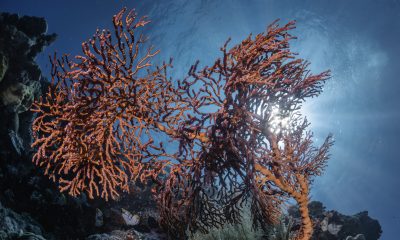
 News3 months ago
News3 months agoDive into Adventure with Photo Pro Paul Duxfield in North Sulawesi this October
-

 Gear News3 months ago
Gear News3 months agoBare X-Mission Drysuit: Ideal for Both Technical and Recreational Divers
-

 Gear Reviews2 months ago
Gear Reviews2 months agoGear Review: Oceanic+ Dive Housing for iPhone
-

 Blogs2 months ago
Blogs2 months agoDiver Discovering Whale Skeletons Beneath Ice Judged World’s Best Underwater Photograph



